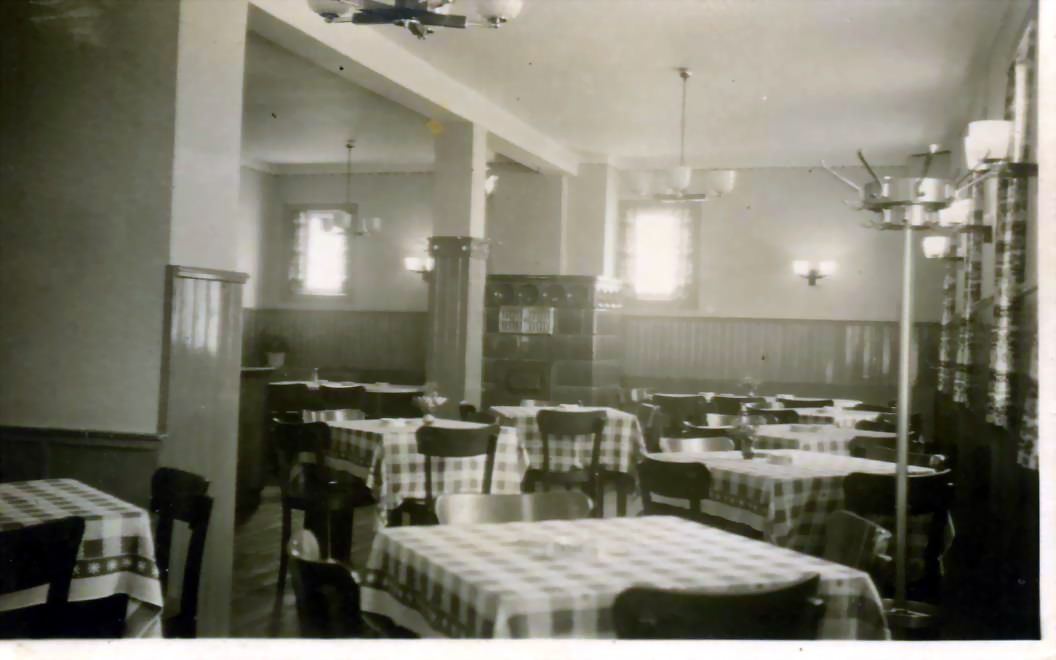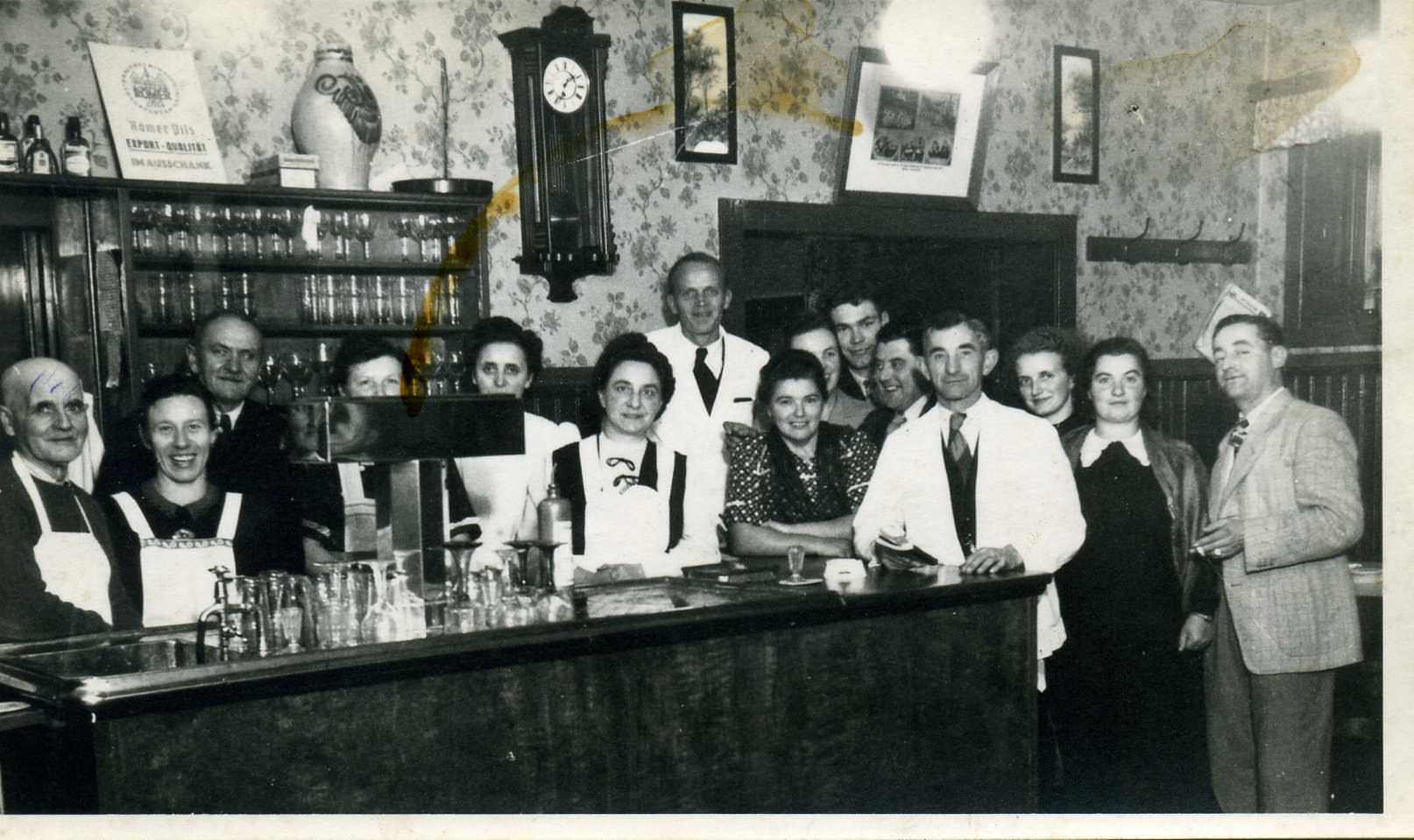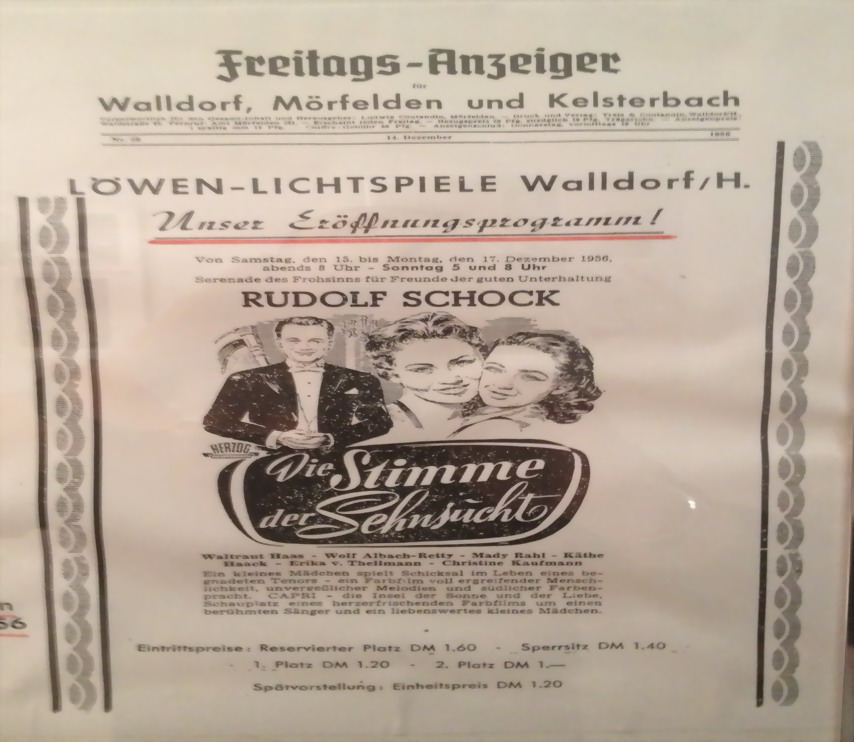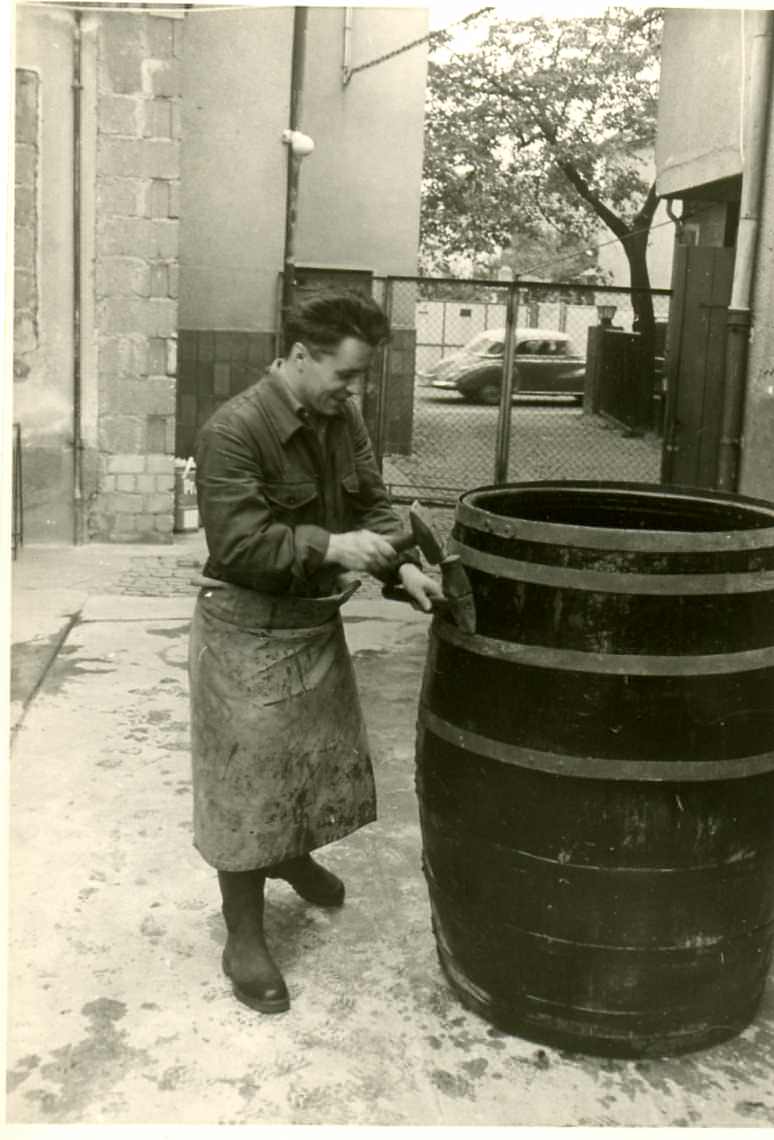Hotel zum Löwen
A House Steeped in History
For over 180 years, Hotel zum Löwen has shaped the townscape of Walldorf. What began in 1843 as a small inn developed over seven generations into a modern 4-star hotel – always managed with heart, quality, and regional connection. In our timeline, we invite you to delve into the eventful history of our house – with milestones full of family stories, entrepreneurial pioneering spirit, and cultural commitment.
Our History – From Foundation to Today
-
1843
Foundation by Jakob Zwilling
Master carpenter Jacob Zwilling, born July 29, 1819, and his wife Katharina, born September 4, 1820, opened the Gasthaus zum Löwen inn at Langstraße 68 in Walldorf on January 1, 1843, becoming the first “Löwen” hosts in the then small community. Jacob Zwilling acquired the property in the same year from Jean Pierre Passet. Originally, the current plots Langstraße 68 and 70 belonged jointly to Jean and Jacques Tron until 1716.
-
1860
19th Century
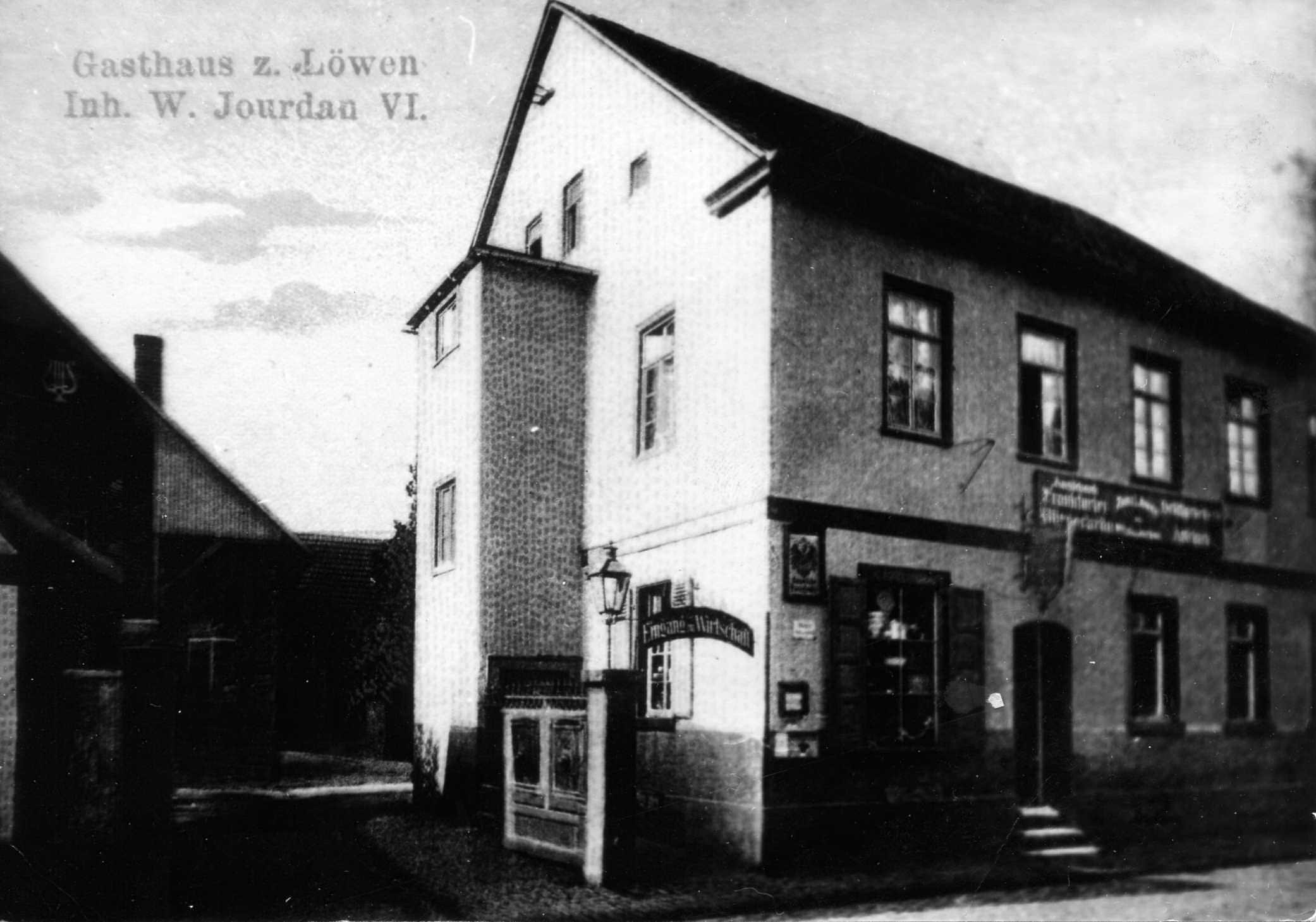
The Zwilling couple had a total of eleven children: one son was stillborn, another son and a daughter died a few months after birth. The youngest son, Hermann, emigrated to the USA at a young age.
-
1877
125 Years of Sängerlust
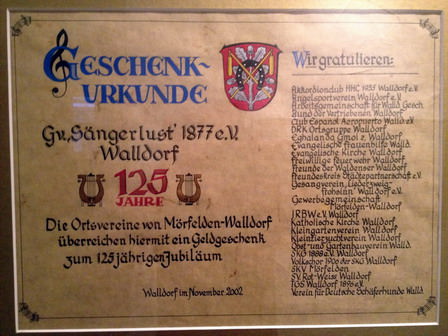
In 1873, the inn was modernized. Four years later, in 1877, the singing society “Sängerlust” was founded at the Löwen, which still exists today. Katharina Zwilling, born July 19, 1857, married Wilhelm Jourdan in 1880; in 1883, they took over the Langstraße 68 property as the second generation, shaping the house and its kitchen.
-
1919
3rd Generation
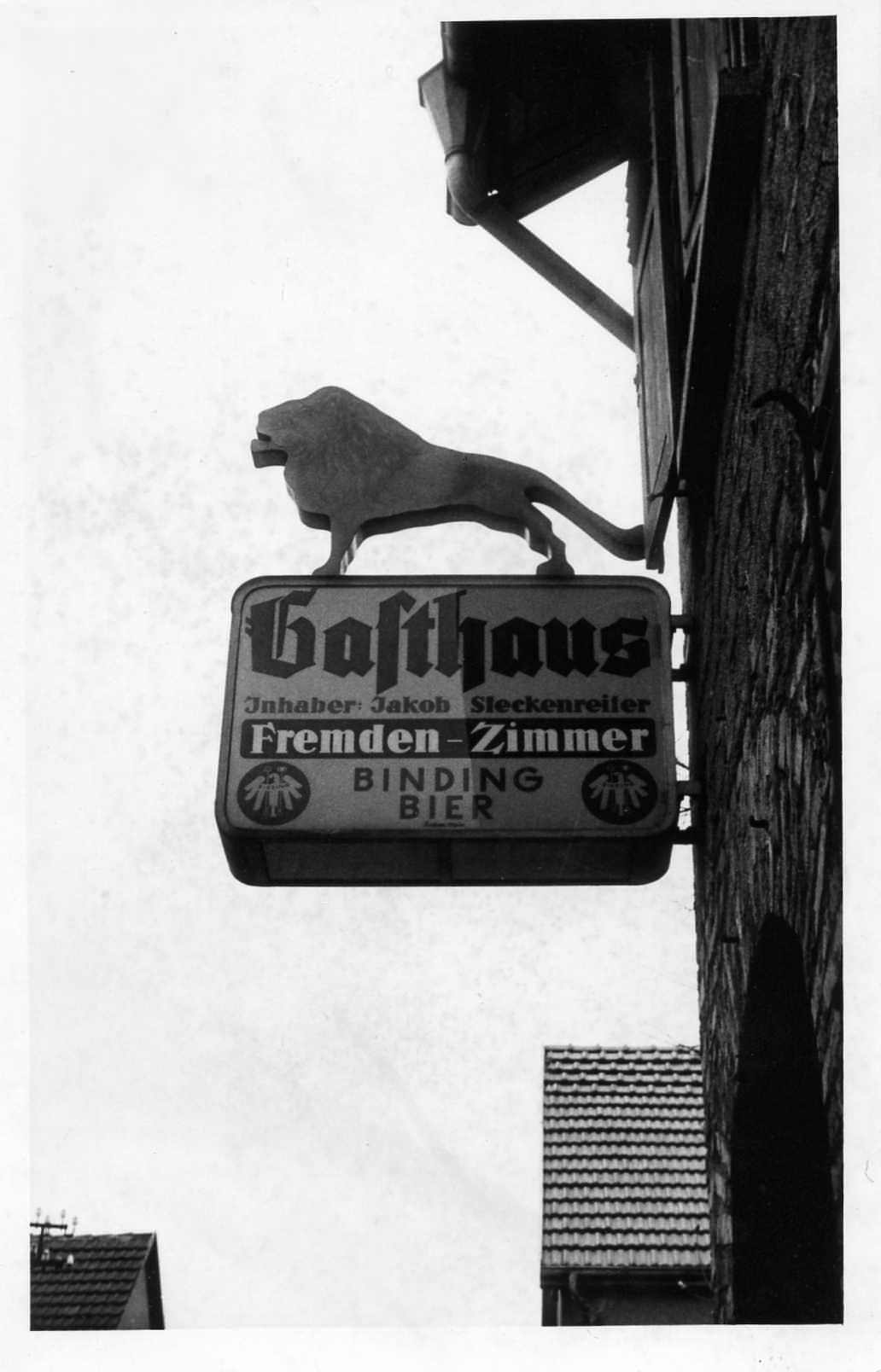
In 1919, Hermann Jourdan (born April 2, 1891) together with his wife Margarethe, née Ponsin, took over as the third generation: inn, grocery store, and post agency. A bowling alley and early film screenings were established in the hall building (Saalbau).
-
1920
Schreunich Gretche
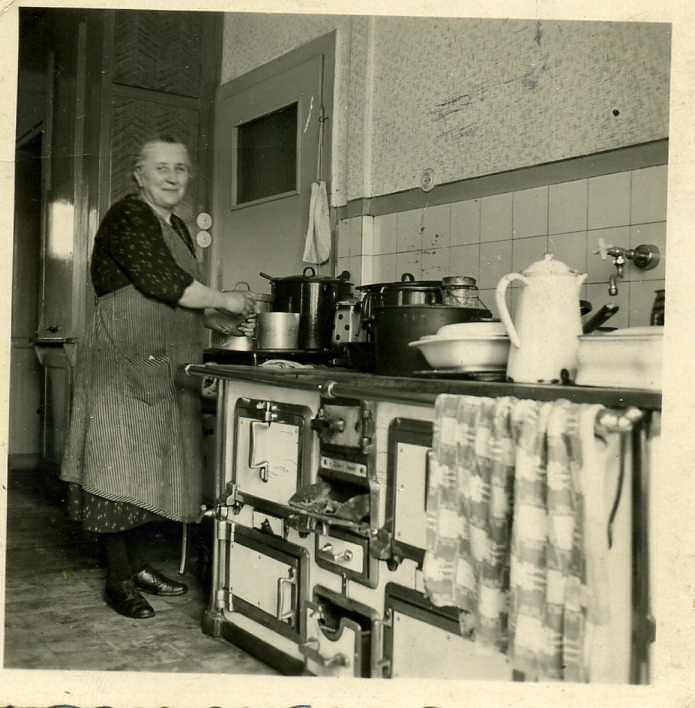
Margarethe Jourdan, known as “Schreunich Gretche”, spoiled guests with festive specialties and always had a coffee-salt cocktail ready. She baked “Kerweborsch” eggs (local fair specialty) in giant pans, 20 at a time.
-
1925
Theater & Operettas
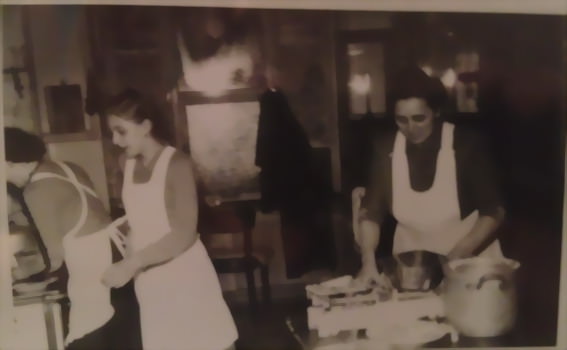
Between the World Wars, the hall building (Saalbau) served as a rehearsal space for operettas such as Winzerliesel, Freischütz, and Preciosa – performed on the second day of Christmas; the village population gathered on the first day.
-
1930
Cultural Engagement
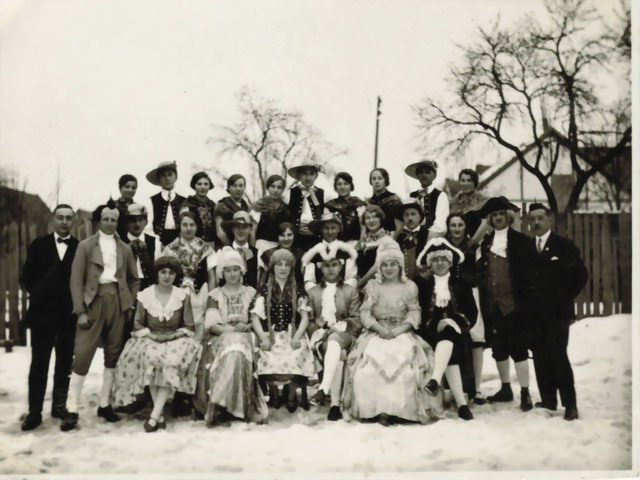
Anna and Jakob Steckenreiter were esteemed performers in club operettas and significantly contributed to the village culture.
-
1948
Anna & Jakob
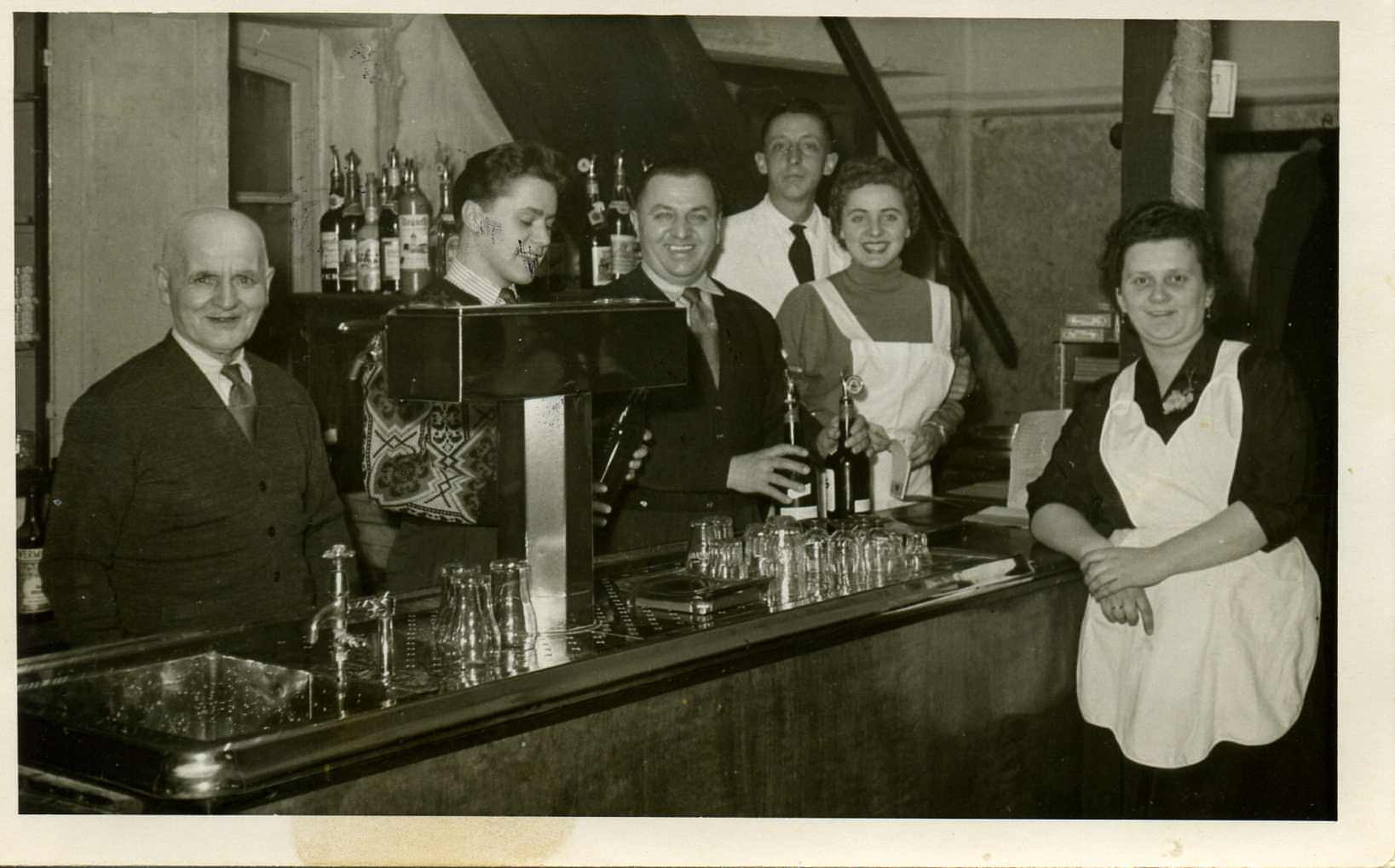
After the war, in 1948, Anna Steckenreiter (born September 27, 1909) and her husband Jakob (born July 5, 1907) took over the property: renovation, guest rooms, and central heating marked the new beginning.
-
1949
Post-War Festivities
In 1949 and 1962, ceremonies for Walldorf’s 250th anniversary and its elevation to city status took place in the hall building (Saalbau); masked balls, concerts, and exhibitions enlivened the house.
-
1950
Staff & Events
In addition to traditional festivals, the team organized opera guest performances, singing competitions, and animal exhibitions – a colorful cultural mix.
-
1956
Hall Building Becomes Cinema
In 1956, the conversion into the “Löwenlichtspiele” cinema began, initiating 36 years of film history in the former hall building (Saalbau).
-
1956
Premiere 1956
On December 15, 1956, Rudolf Schock ushered in the era of the Löwenlichtspiele with the premiere film “Die Stimme der Sehnsucht” (The Voice of Longing).
-
1973
Günter Takes Over
After the accidental death of his brother in 1956, Günter Steckenreiter (born July 13, 1938) took over management in 1973. He had married Marion Hartung in 1962 and had two sons.
-
1983
Expansion 1983
In 1983, a new guesthouse was built with 8 single and 4 double rooms, plus an apartment, to meet demand during trade fair season.
-
1992
Demolition & New Construction
In 1992, the cinema era ended, and excavators began the demolition. By 1994, the modern new hotel building was erected, crowning the 150th anniversary.
-
2000
7th Generation
Today, Jessica and Christopher, children of Jörg Steckenreiter, are undergoing gastronomic training to prepare for continuing the family business. Apple wine pressing (“Ebbelwoi”) and hotel tradition live on.

